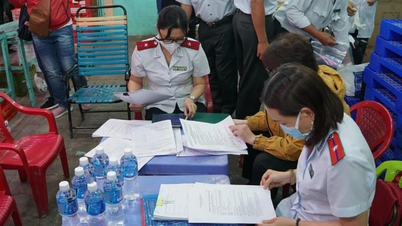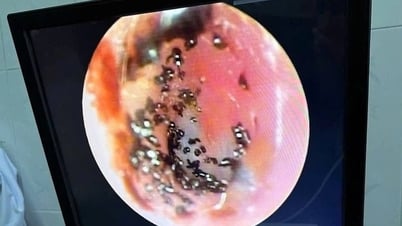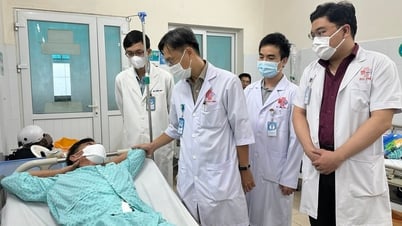A 71-year-old male patient (Bac Giang) had severe influenza A with complications of progressive respiratory failure, was hospitalized with symptoms of cough, fever, muscle aches and did not improve after self-treatment at home.
After being treated at a lower level without improvement, the patient was transferred to the Department of Internal Medicine and Anti-Poisoning, Intensive Care Center, 108 Central Military Hospital in a state of severe respiratory failure, requiring mechanical ventilation.
Tests confirmed that the patient had influenza A, with widespread lung damage, leaving the lungs almost incapable of performing gas exchange. Given the patient's failure to respond to mechanical ventilation, doctors immediately decided to apply ECMO (artificial heart-lung system).
ECMO acts as an "artificial lung," providing oxygen to the blood and removing carbon dioxide when the lungs are no longer able to do so. It is the only life-saving treatment in cases of severe respiratory failure. After four days of treatment, the patient's respiratory condition improved and ECMO was removed.
Dr. Pham Dang Hai, Head of the Department of Internal Medicine Resuscitation and Poison Control, said that influenza A is an acute respiratory infection that often occurs in winter-spring and when the seasons change. The disease spreads through the respiratory tract through droplets from patients when they cough, sneeze or through contact with surfaces contaminated with the virus.
Dr. Pham Dang Hai recommends that people with underlying diseases, the elderly, or those with weakened immune systems should be especially careful when infected with the flu. The flu can lead to serious complications such as diffuse lung damage, bacterial superinfection, myocarditis, multiple organ failure, and even death.
Source: https://nhandan.vn/chay-ecmo-cuu-nguoi-benh-mac-cum-a-nguy-kich-post871358.html





![[Photo] Prime Minister Pham Minh Chinh chairs conference on anti-smuggling, trade fraud, and counterfeit goods](https://vphoto.vietnam.vn/thumb/1200x675/vietnam/resource/IMAGE/2025/5/14/6cd67667e99e4248b7d4f587fd21e37c)

















![[Photo] Exhibition "The South forever remembers His grace"](https://vphoto.vietnam.vn/thumb/402x226/vietnam/resource/IMAGE/2025/5/14/76916f6645ea47428f530edd4146f70f)




































































Comment (0)